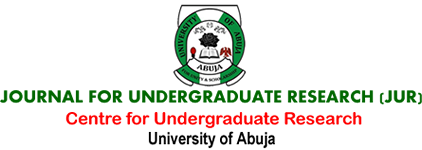The Use of Modal Auxiliary Verbs in Nigerian
Newspaper Reports on Corruption
Author(s) : Amoo Olusegun Abraham & Usman Muhammed Bello
ABSTRACT:
Crime and corruption are often interconnected, as corruption can contribute to the spread of criminal activities. Corruption is a broad subject being reported by Nigerian dailies everyday. This paper examined the use of modal auxiliary verbs in selected newspaper reports on corruption. The reports analyzed were on purpose chosen from four Nigerian National dailies, Vanguard, The Nation, Daily Trust and Nigerian Tribune published between November and December, 2022. This is because of their vast readership and circulation across major geographical areas of the country. From each of the newspaper, five reports were randomly selected. However, the data gathered were analyzed in line with the different functions of the modal auxiliary verbs in question. Five categories of modal auxiliaries namely, certainty, probability, usuality, obligation, and inclination characterized the data. Findings indicated that reporters chose predictive auxiliary modals will and would, and obligative modals must and should in that order in the reports. Other types of modal used are can, shall and may. The modals used presented the opinions of the reporters and will reported the highest frequency. It concluded that employing modals is a potent tool with the potential to influence public perceptions of corruption and those involved in it.
KEYWORD(S):
Modality, Modal verbs, Corruption, Newspaper Reports

